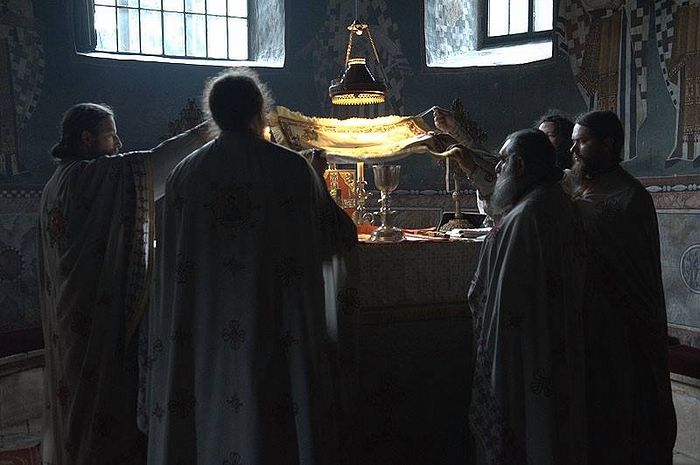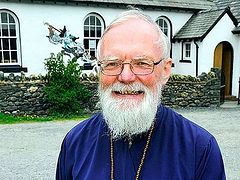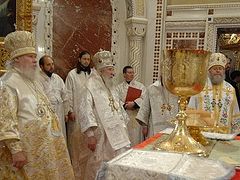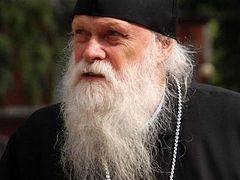There is one thing to be said about Church-shopping: you can always find a better one…
I often see examples of what I would describe as “comparative denominationalism.” It is the comparison of one Church to another (yes, I know that Orthodoxy is not a denomination). Indeed, the drive for a “better Church,” a “more authentic Church,” the “true Church,” the “New Testament Church,” is little more than a game invented in America during the 19th century. It is post-Reformation and represents the rise of Christian consumerism.
I have long thought that Orthodox Christianity comes out on the short end in this shopping effort. For some, it seems too hard, too complicated, too ethnic, too riddled with rules, too confusing and inconsistent, etc. All of those things are true. And, just when you think you’re going to like it, there’s some sort of train wreck across the world and it falls apart again.
The greatest victim in the course of the split between East and West, and later in the Reformation, was the Church itself. To a great extent, the last thing considered in all of the various iterations of doctrine was ecclesiology (the doctrine of the Church). Particularly after the Reformation, the notion that correct doctrine would produce a correct Church gained increasing acceptance. However, history has repeatedly proven this to be a false idea. No matter the corrective measures, Christianity, as Church, remains flawed. Apparently, allowing sinful people to be part of the Church ruins its excellence, and, even the most excellent people are revealed to be broken.
All efforts of comparison fail. Perhaps the assumptions that drive comparisons are the real problem.
I will describe what I mean in terms of my own experience. I did not become an Orthodox Christian because I thought the experience would be more excellent than my Episcopal life. Indeed, in many ways, I knew that the most immediate consequences of my conversion would be pushing my ecclesiastical life off a cliff. Just months before being received into the Church, my corner of the Southeast was plunged into a terrible schism (OCA/ROCOR) that revealed some the worst weaknesses of American Orthodoxy. To a degree, my life is still encumbered with the effects of that situation.
It was possible for me to make comparisons: priests in Orthodoxy were and are more likely to believe the Creed, but even demons believe the Creed and tremble. The shared life of a common tradition is far richer in Orthodoxy (I prefer the piety of peasants and monks to the sentimentality of Anglo-Bourgeoise). However, piety easily becomes more of a “style” and a “badge” than a thing that is practiced. In short, comparisons reveal the one who does the comparing.
So why convert? I think that is a serious question and worth considering carefully. My own journey towards Orthodoxy spanned nearly 20 years. I looked at every possible angle.
At its deepest level, I came to see that becoming Orthodox was a renunciation of comparisons and the empty efforts to improve the Church. It became an agreement that the Church, with all that came with it, was instituted by God for our salvation. The Church is what salvation looks like. Someone could ask, “Couldn’t that be done in any ecclesiastical setting?” My conclusion was that this was not so. Reformation, Counter-Reformation, Restoration, Oxford Movement, Latter Rain Move of God, the endless forays towards some new, imagined excellence, were the founding ideology of the various modern ecclesiologies. Orthodoxy represents our original incompetence. It is the quarreling of the Corinthians, and the fiery courage of Ignatius of Antioch. It is the excess of Greeks, the soul of Russians, and dancing Ghanians.
The story of the Church is not one of progress, certainly not a progress that can be measured by worldly standards. The saints and martyrs alone serve to give evidence that the vine is still alive and fruitful.
Thus, to a large extent, my conversion to Orthodoxy was a decision to cast my lot into the messiness of our original humanity, refusing to remain a part of the modern project and its attempt to improve on the work of God. Its idolatry has been to make successful versions of a middle-class secularism at prayer. The result is largely insipid.
I am often embarrassed by Orthodox failures, just as I am by my own, and for the same reason. However, I believe our failures are uniquely unmasked by the sublime reality of the sacraments, and the perfection of the gift we have been given. It is measured by the yardstick of the spotless bride and constantly found wanting. And this is the truth of our existence. I would not want to exist in any other manner. Before the altar of God, I stand in union with human failure throughout the ages, and in union with the infinite compassion of Christ.
Accept, O Lord, this sacrifice upon Your heavenly, noetic altar, and send down upon us in turn, the grace of Your Holy Spirit.





